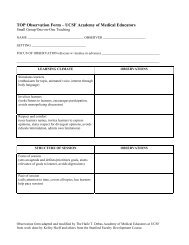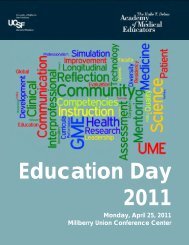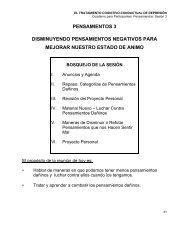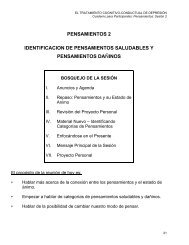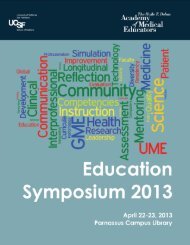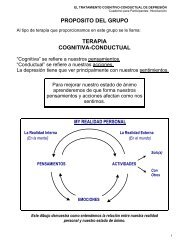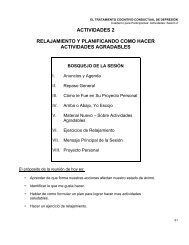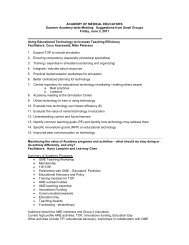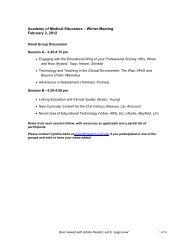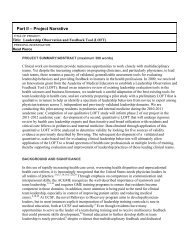The Healthy Management of Reality - Stanford University
The Healthy Management of Reality - Stanford University
The Healthy Management of Reality - Stanford University
You also want an ePaper? Increase the reach of your titles
YUMPU automatically turns print PDFs into web optimized ePapers that Google loves.
It appears, then, that there is a range <strong>of</strong> self-esteem within which one canfunction in a healthy manner. Molding one's internal reality so that this range isaccessible most <strong>of</strong> the time would be a worthwhile goal. Similarly there isprobably a range <strong>of</strong> activities that are healthy -- but too few or too many are likelyto cause problems. And there is probably an optimal level <strong>of</strong> social contact: havingno friends or confidants is related to greater levels <strong>of</strong> illness and dysfunction, butone could as well imagine being overwhelmed with social activities, leading toeither running oneself ragged, or being unable to have other than superficialcontact with many people.On the Desirability <strong>of</strong> "Control"<strong>The</strong>re are many traditions that speak to what is desirable in terms <strong>of</strong> seekingcontrol. Some appear to suggest that the best path is one <strong>of</strong> complete surrender toGod, to fate, or to reality, and that attempts to achieve one's goals are a bad sign <strong>of</strong>human pride ("hubris"), a possibly tragic way <strong>of</strong> tempting fate, or merely anillusion <strong>of</strong> control rather than a recognition that things merely are the way they are.Belief systems such as these <strong>of</strong>ten portray the more active ones as leading itsproponents into futile struggles which are either destructive, doomed to failure, orboth.<strong>The</strong> more active ideologies espouse the value <strong>of</strong> self-determination, thedignity <strong>of</strong> "pulling oneself up by one's bootstraps," and the need to actively createone's future.At first glance, this book, beginning with its title, appears to have a lot morein common with the latter than with the former. But it is important to see that itdraws much from both camps.<strong>The</strong> first set <strong>of</strong> ideologies remind us <strong>of</strong> how limited we human beings are.HMOR.July2005.Muñoz.doc 32



